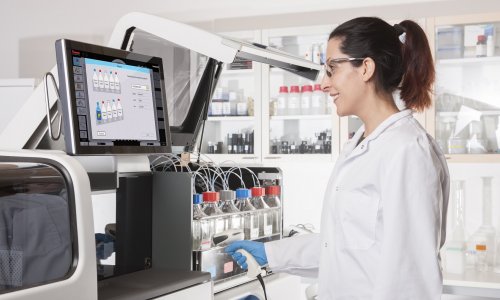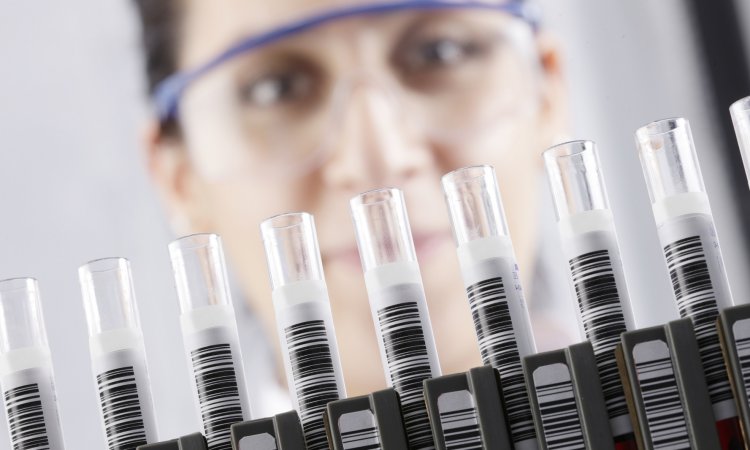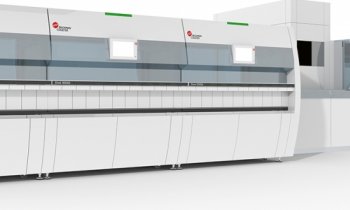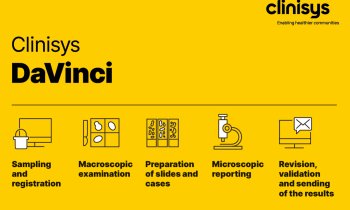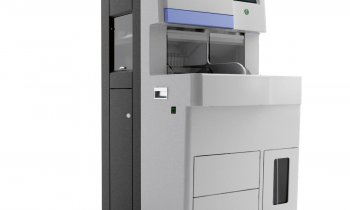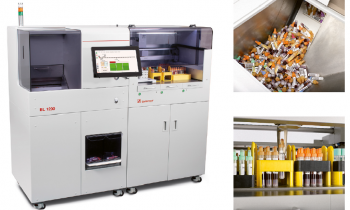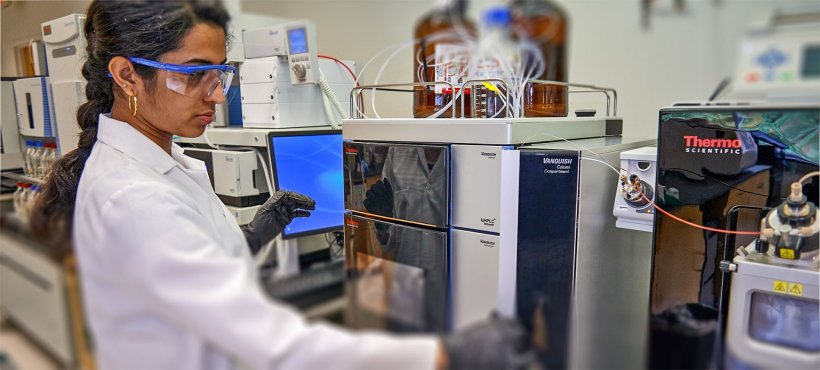
Image source: Thermo Fisher Scientific
News • Sample analysis
Next-generation analytical lab software strengthens data exploration
Scientists in the life sciences can now benefit from upgrades to a suite of analytical software solutions with new features designed to enhance productivity, confidence and accuracy in numerous fields, including proteomics, food safety and biotherapeutic drug development.
The latest suite of software strengthens laboratory workflows across a range of applications through expanded capabilities, increased automation and use of modern technologies, such as deep learning. “Researchers and analytical scientists across the globe depend on life sciences software to convert data to knowledge, advance research and ensure the safety of consumer products, but they are challenged with ever-increasing data complexity and volume,” said Mark Sanders, senior director, life sciences mass spectrometry software, Thermo Fisher Scientific. “To support the evolving needs of our customers, we continually develop our suite of software to provide laboratories with extended flexibility, efficiency and the confidence they need to perform critical work.”
Recommended article

Sponsored • Testing technology
Vitamin D testing: LC-MS outperforms immunoassays
In recent years, clinicians have increasingly focused on vitamin D deficiency. Studies show that previous reference values – particularly for Vitamin D3 – were most probably set too high. Liquid chromatography with mass spectrometry (LC-MS) can help achieve more precise measurements of vitamin D levels than previously established immunoassay procedures, explains Dr Torsten Binscheck-Domass,…
The newest release of Thermo Scientific Proteome Discoverer 2.5 software provides higher confidence peptide identification, more accurate quantification and higher throughput data analysis to proteomics scientists than previous versions. The intelligent software uses deep learning facilitated by a Prosit-derived neural network, licensed in collaboration with MSAID GmbH, to provide more accurate prediction of fragmentation mass spectra. The technology enables more confident results in applications such as human leukocyte antigen (HLA) or metaproteomic analysis, which require large search spaces. Additionally, the new release includes a new enrichment service that helps provide biological meaning for differential analyses and support of targeted workflows. The software features tools to help deploy Thermo Scientific SureQuant Targeted Mass Spectrometry (MS) Assay Kits and custom SureQuant IS-triggered acquisition assays in new proteomics laboratories.
The release of the new Thermo Scientific Compound Discoverer 3.2 software addresses the needs of researchers using high resolution-accurate mass (HRAM) gas chromatography-mass spectrometry (GC-MS) instrumentation for small molecule analysis with a fully supported software solution for Thermo Scientific Orbitrap GC-MS systems. Users can benefit from advanced sample characterization with HRAM GC-MS data for easy identification of biomarkers and other compounds, and the ability to perform statistical analysis with the software’s statistical processing engine. Two additional software nodes support chromatographic deconvolution, peak grouping and identification by spectral library search. These new nodes provide productivity gains, through an automated method for unknown compound identification with both electron ionization (EI) and positive chemical ionization (PCI) data on the GC Orbitrap system.
Small molecule researchers using the Thermo Scientific Orbitrap Exploris mass spectrometer platform for structural identification and characterization will now experience the advantages of the Thermo Scientific Xcalibur 4.4 software to automate their processes and save user time. The latest upgrade broadens the AcquireX intelligent data acquisition workflow across a wider range of instrumentation. The new software enables the fully automated collection of high-quality MS/MS data on components of interest in a sample, reducing manual input and the need for multiple runs.
Supporting scientists in the development of new biopharmaceuticals, the newest Thermo Scientific BioPharma Finder 4.0 software introduces an advanced solution for the characterization of both protein biotherapeutics and oligonucleotide therapeutics, providing enhanced flexibility to biopharmaceutical laboratories. Using a novel MS2 prediction algorithm, automatic identification and annotation using MS2 data, the software offers increased confidence in results with reduced operator effort. The updated Sequence Manager supports DNA and RNA and allows users to create their own oligo sequences for a new level of adaptability for a wide range of study.
The upgraded Thermo Scientific Almanac v1.4 software delivers a simple and efficient method to solve technical issues with GC-MS, liquid chromatography (LC-MS) and ion chromatography (IC)-MS instruments. Building upon the remote monitoring and alerting capabilities of previous versions of the Almanac software, the latest upgrade allows analytical scientists to share supplemental information easily and securely with the service team, eliminating the need to manually explain problems.
Recommended article
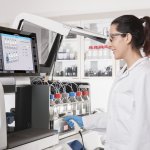
Sponsored • Liquid chromatography/mass spectrometry
LC-MS: Calling for easy-to-use platforms
Liquid chromatography/mass spectrometry (LC-MS) is an established powerful tool in routine clinical use and clinical research. However, to further capitalise on its benefits, instrument and consumables vendors should continue to improve accessibility and ease-of-use, according to Dr Debadeep Bhattacharyya, senior marketing manager for clinical and forensic at Thermo Fisher Scientific. Remarkable…
The qualitative analysis of mass spectral data is enhanced with the release of Thermo Scientific FreeStyle 1.7 data review application for Xcalibur software, which enables mass spectrometry users to easily visualize data in multiple formats, discover new insights and make the most informed decisions in their research. The latest version features access to Multiple Mass Defect Filtered chromatograms for a mass and mass defect range, editable isotope abundance and analytics histogram views. The new solution also offers the same familiar interface and easily accessible tools that FreeStyle users are accustomed to using.
The high-throughput screening and quantitation of compounds is a crucial process performed in routine analyses across forensic, environmental and food safety laboratories. With the introduction of the new Thermo Scientific TraceFinder 5.1 software, scientists can simplify and optimize quantitation with improved integration of difficult peaks, delivering consistent results between users. The software features the ability to search both a Thermo Fisher library and a custom library in the same method, providing access to an increased number of compounds. Laboratory scientists and technicians also benefit from streamlined reporting, with easily customizable reports that avoid complex formatting and formulas.
Thermo Fisher Scientific will showcase its newest products and software solutions in a company-hosted virtual event, vLC-MS.com, from May 26-28, 2020, and at the American Society for Mass Spectrometry (ASMS) Reboot Program, from June 1-12, 2020.
Source: Thermo Fisher Scientific
04.06.2020
- automation (207)
- deep learning (167)
- IT (891)
- laboratory (1110)
- mass spectrometry (78)
- workflow (495)




